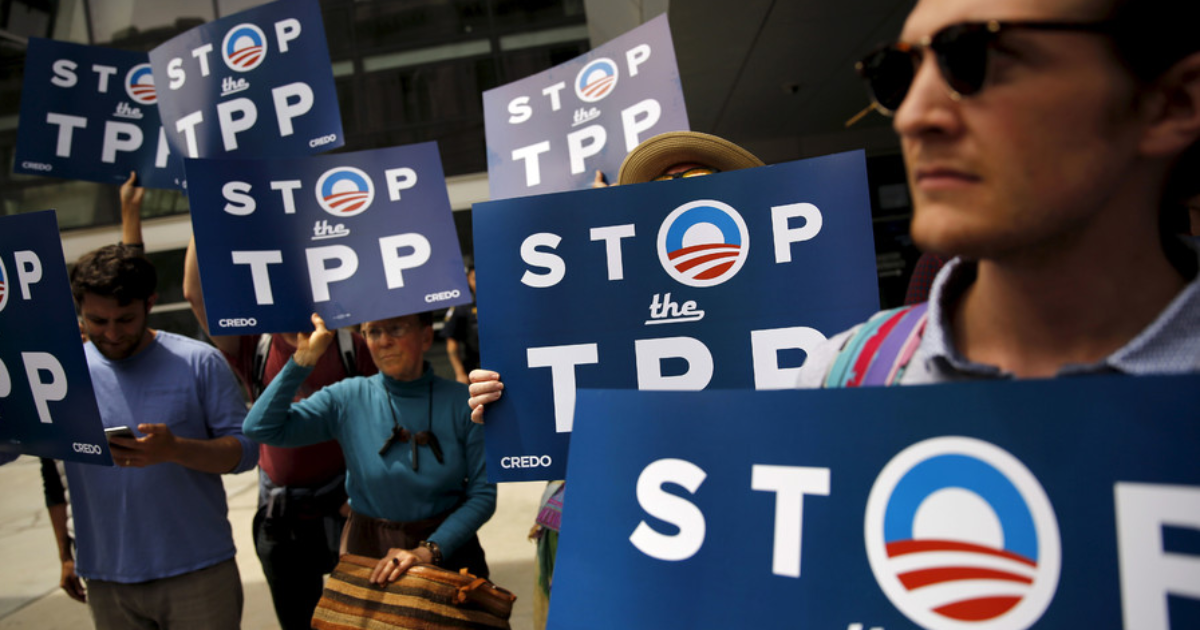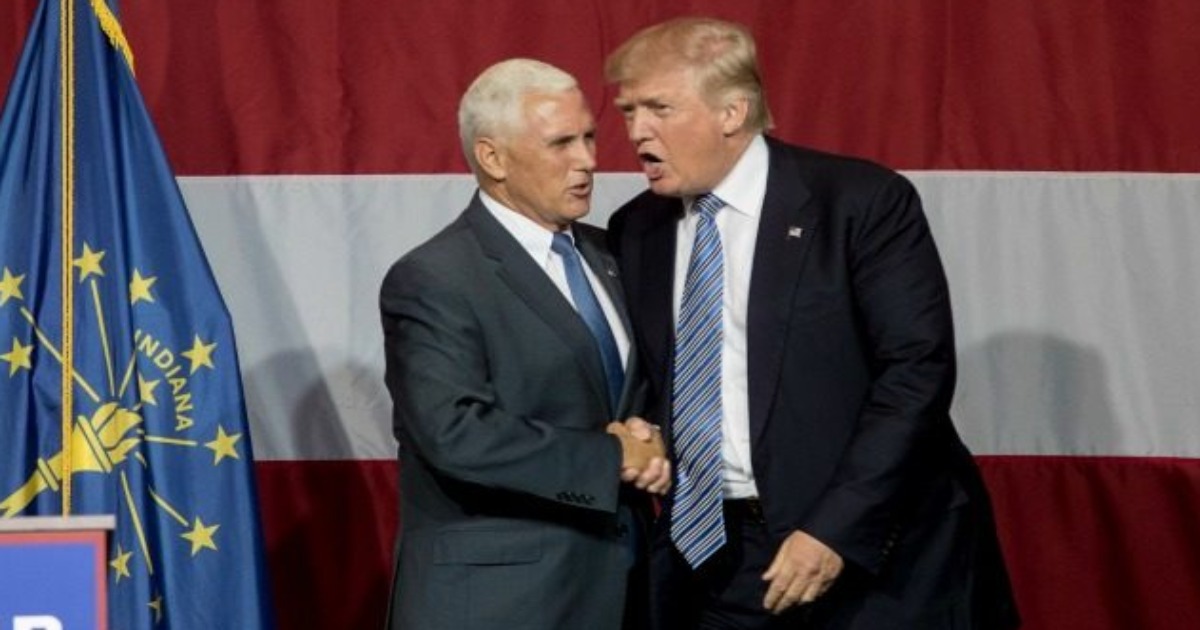This Thursday, February 4th, represents a milestone for the controversial Trans-Pacific Partnership (TPP) as representatives of 12 Pacific Rim nations gather in Auckland, New Zealand to sign off on what has been described as “one of the most ambitious trade deals in history” – and more accurately, as a wholesale takeover of democracy by global corporations. Therein lies the rub; although 12 nations, including the United States, are gleefully signing off on this ill-advised treaty, that doesn’t make it a done deal. Because the signatory nations are still Democracies (at least, for the moment), the legislatures of those nations must ratify it as is – no amendments allowed.
So far, the only signatory nation that has made any movement at all in that direction is Malaysia. Last week, the Malaysian parliament rammed its endorsement through by a vote of 127-84 despite massive citizen protests in Kuala Lumpur. In Canada, the Minister of International Trade has posted an open letter online letting Canadians know that while “TPP presents significant opportunities,” there are still serious concerns, and that a great deal of study is “needed to fully understand the TPP’s impact.” Demonstrations in New Zealand against the TPP are ongoing (at least until the local constabulary is able to remove the protesters in consideration of Thursday’s meeting).
The timing could not be worse for President Obama, who has championed the TPP almost from the beginning. As self-serving and out-of-touch as most members of Congress are, even the worst of them know full well that past “Free Trade” deals have left a bitter taste in the mouths of Americans who have lost their jobs, seen their wages stagnate and plummet, and been left with cheap consumer goods manufactured in overseas sweatshops. It’s a particularly sticky subject during an election year, and virtually every major candidate, from Progressive champion Bernie Sanders to right-wing buffoon Donald Trump has come out against the TPP.
Of course, such stated positions bring to mind an old Burt Bacharach song; we’ve heard those “Promises, Promises” before. As a candidate in 2008, Barack Obama assured us all that he would stand up against such “Free Trade” deals that are free for global corporations, but very costly for the rest of us. Bernie’s record demonstrates that he can be relied upon to oppose such deals, but virtually every other Presidential candidate – as well as many members of Congress up for re-election this year – have supported them in the past (including Hillary Clinton, whose position on the TPP has been “fluid,” to put it kindly). And, despite his campaign assurances of eight years ago, Obama has not hidden his infatuation with the TPP.
Unfortunately for the political powers that be, the secretive TPP has been outed and is now recognized by Americans across the political spectrum for what it is: the handover of our Democratic sovereignty to the executives of global corporations. Progressives, liberals, conservatives and even libertarians are setting aside their differences and standing united against the hands-down worst trade agreement ever devised. Even those who may not fully understand the agreement itself have seen what NAFTA and CAFTA has done to the nation’s workers – and they’re not going to fall for it again.
Little by little, what citizen support there ever was for the TPP is in free fall. Numerous studies may demonstrate the “benefits” of the TPP, but they carefully avoid mentioning negative impacts on jobs and the overall domestic economy. Even some of those studies cannot avoid the inescapable conclusions that the TPP is bad news for workers. A paper from the Peterson Institute for International Economics, published only last month, trumpets all the trade benefits of the agreement, but acknowledges that 121,000 high-paying U.S. manufacturing jobs would be lost under the TPP. These would be replaced by low-paying service jobs, assuming there would be no net job losses in the U.S. economy – which is unlikely.
Such resistance to the TPP is growing around the entire Pacific Rim region, not just the United States. Given that it is an election year here at home, we’re not likely to hear much discussion about the TPP – and even if the deal’s supporters do manage to win in November, public support for it will continue on its downward trajectory. At worst, it will force the U.S. and its Pacific Rim partners to renegotiate the deal.
At best, it could spell the demise of the TPP altogether.


